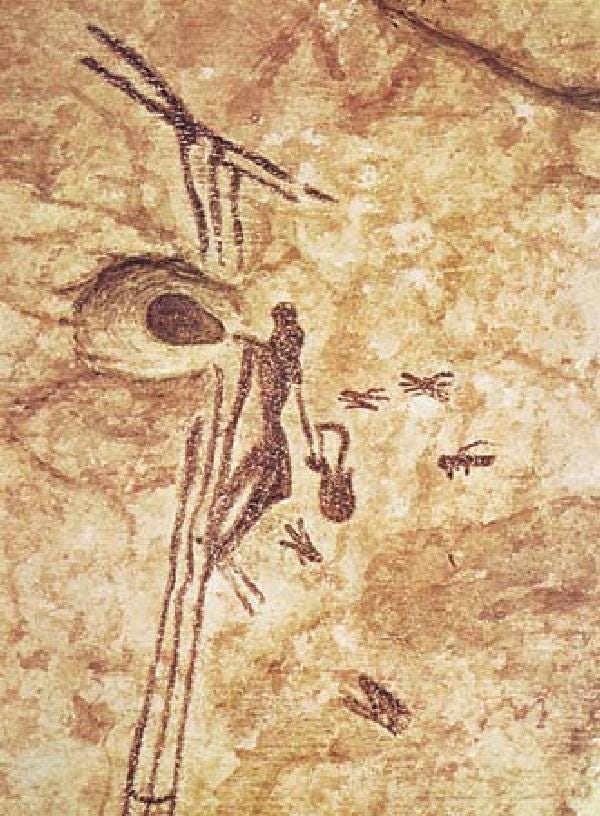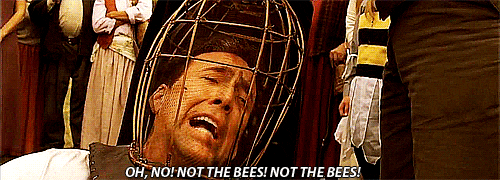Queen Bees
telling secrets to a swarm and history of honey
The news across the US continues to breathlessly report on the Queen’s passing, the insane wait time to view her coffin, the activities of the new King, etc. like we didn’t fight a whole ass war to free ourselves from the monarchy. It’s invaded every corner of culture. Flags at McDonalds across LA are flying at half-mast right now. Things are bananas. There are myriad reasons to take issue with the monarchy and all the restrictive traditions of a nation forced to mourn, but telling the bees isn’t one of them.
On its face this might seem like another opportunity to dunk on the bloated sense of self-importance royals have but we here at Bad Manners HQ love it. The bees weren’t told about Elizabeth’s passing because she was, ya know- the queen, but because they were her bees. This tradition of telling the bees important news, of deaths, and other changes to the family, has a long history across Europe and in North America. Bees were intelligent members of the household and thus, keeping them up to date on the news of the day was seen as a crucial part of maintaining the mutually beneficial relationship.
Births, deaths, and marriages were all told to the bees with bits of funeral cakes or wedding cakes left out by the hives. Bees have long been included in mourning rituals with black ribbons or shawls being placed over the hives. Leaving bees out of the loop was considered very bad luck. You ran the risk of all your bees dying or deserting the hive because of your lack of consideration and respect.
We’re not weighing in the many ethical dilemmas surrounding bee keeping and modern honey production in this newsletter. But we do think it is worth taking a minute to appreciate a time where we saw ourselves, rightly, as members of the natural world and all that goes into that.

Humans, just like modern apes and chimps, have always loved honey. There are paintings in caves and other rock surfaces that depict swarms of bees and honeycombs on almost every continent, with some dating back over 40,000 years ago. The oldest evidence of humans ever-evolving relationship with bees is found in Egypt and Turkey from almost 9,000 years ago. There is a recently discovered, 7,500-year-old cave painting in Spain that shows a person climbing a rope ladder to reach a beehive. Ancient Greeks believed the king of gods, Zeus, was reared on honey and ancient Egyptians believed bees were born from the tears of the god Re. In both cultures this imbued bees and their honey with great cultural and theological importance. Celtic myths believed bees to be the wise intermediaries between humans and the afterlife, with the ability to share messages from the gods. Everywhere that bees and humans have coexisted, people have elevated and revered bees. Hell, this week was the 25th anniversary of Mariah’s release of her classic album Butterfly and her certified banger single “Honey.” Is there any higher honor? We don’t think so.
This is all a long way to say that this bit of news from the palace was the least annoying of the whole mess. It harkens back to a time where we were more in rhythm with the natural world and more appreciative of the everyday magic in plants, animals, and insects. The environment and global climate would be much better off if we continued to think of how the activities within our human societies impacted the natural world, and our survival within it. Hopefully there will still be bees around when we do.
Thanks for joining us here in the Broiler Room. We’re community supported and appreciate each and every one of you. If you’re part of our paid supporters recipe club, tomorrow we’re sending out our take on the pomodoro pasta sweeping the web. You won’t wanna miss it.
Michelle and Matt







